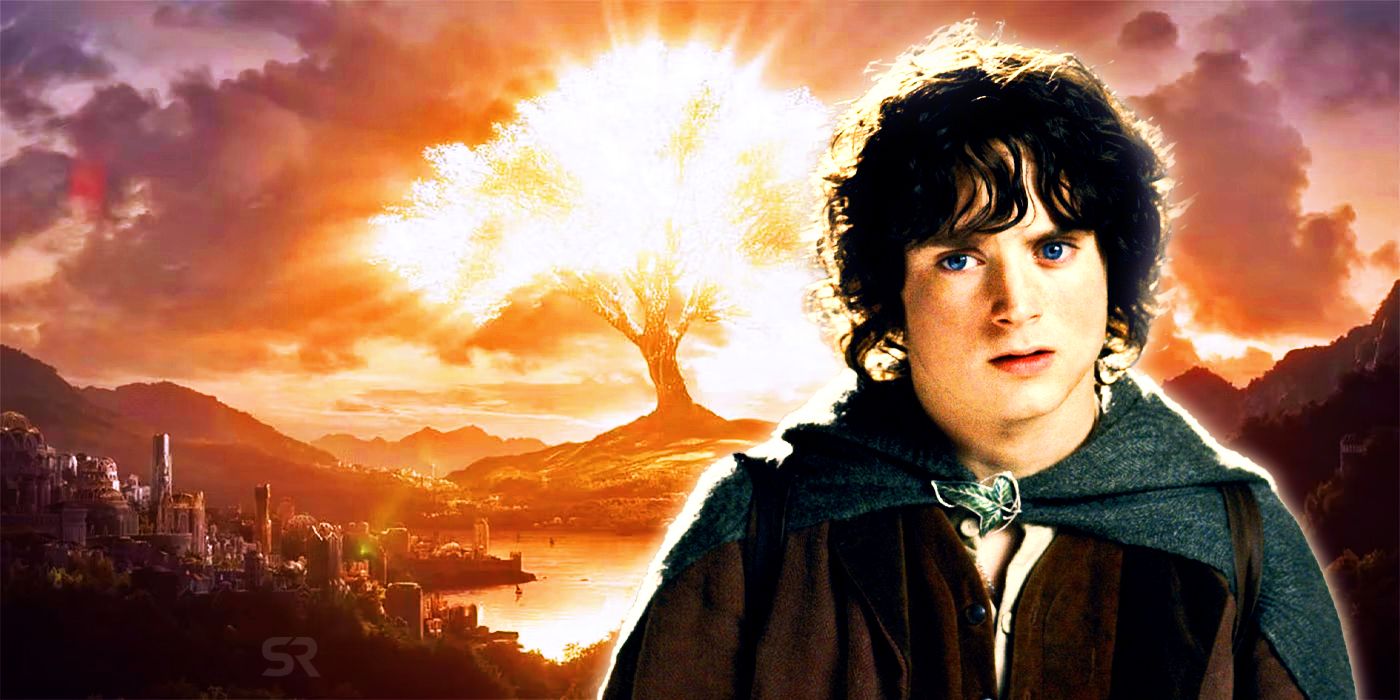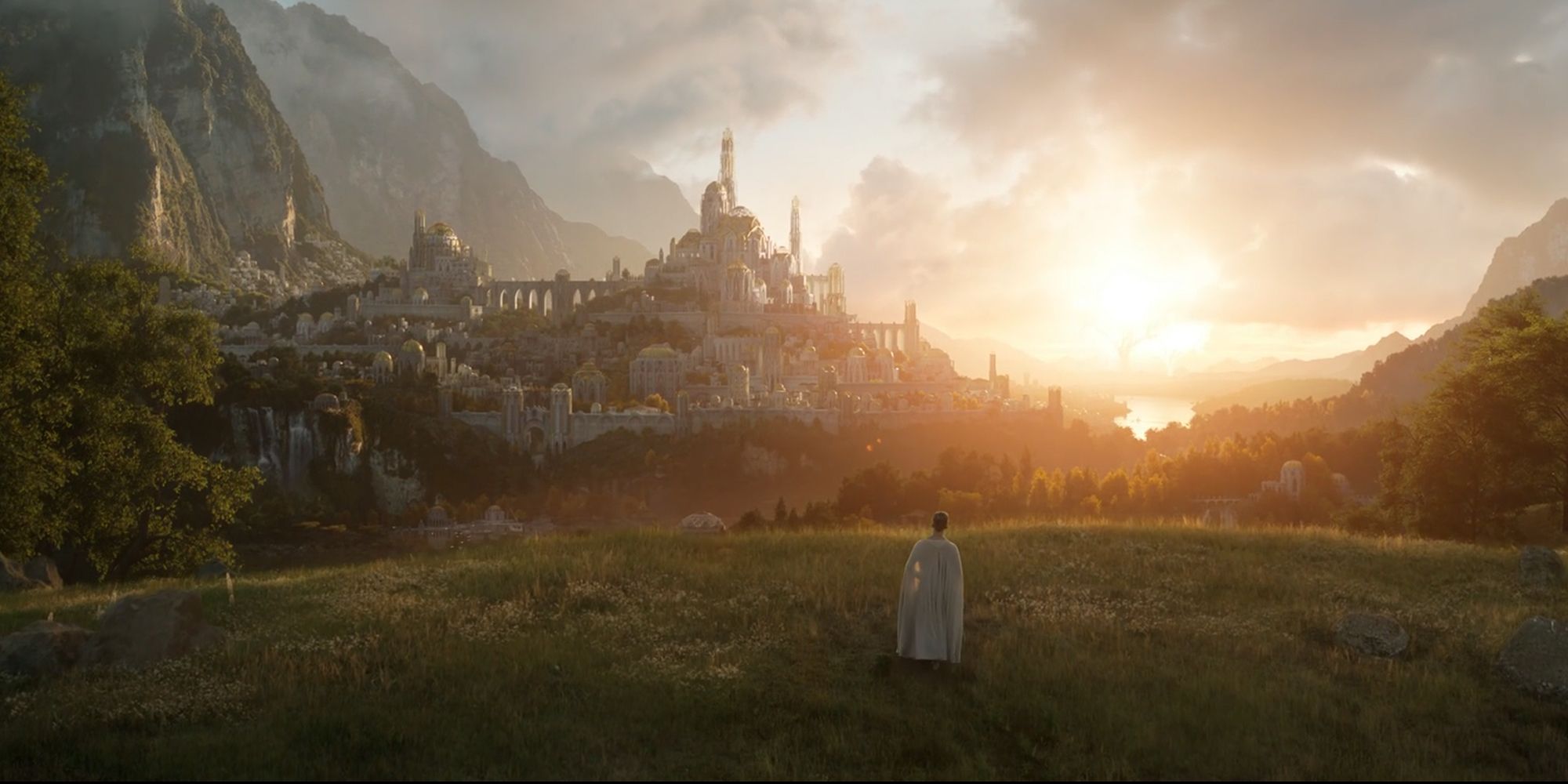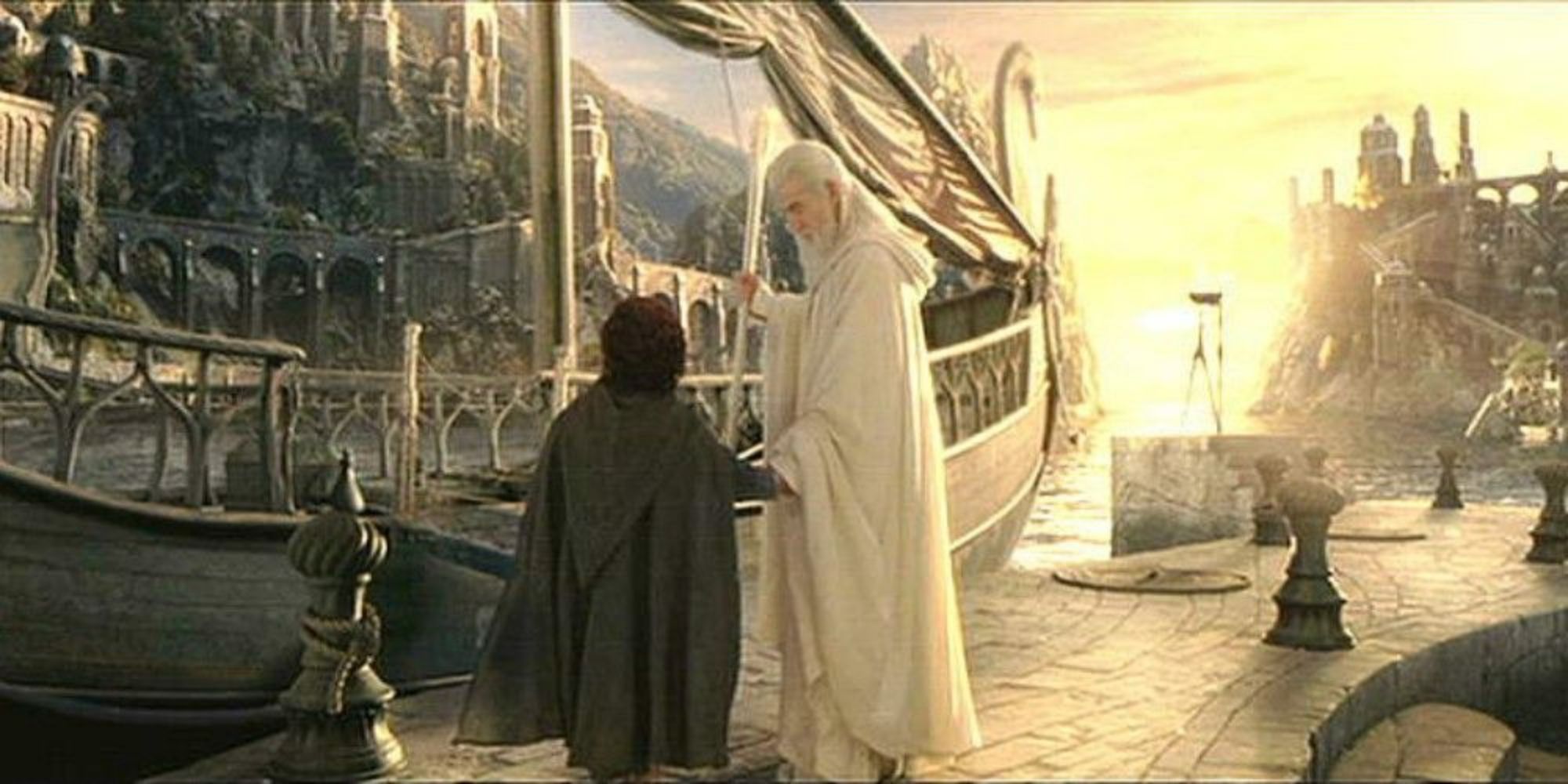At the end of The Lord of the Rings, Frodo sets sail for the Undying Lands, which implies that he will live in peace and harmony for all eternity. This is where the immortal Elves come from (most recently) and where they return to when they find that their work in Middle-earth is done. So, it is often assumed by Lord of the Rings fans that death in its entirety doesn't exist in the Undying Lands. However, this isn't strictly true.
The world of Lord of the Rings is called Arda. Arda contains several continents that behave as separate worlds of their own. The setting of Frodo's story is the continent of Middle-earth, and to the west is Aman. This continent is often called Valinor, or the Undying Lands. Valinor is the home of the Valar, god-like, immortal beings who, throughout history, allow other immortals to live there. Without the existence of mortality, Valinor could stay almost entirely devoid of evil, which makes it a paradise.
Beings In LOTR's Undying Lands Will Still Eventually Die
Even the immortal Elves can die in Valinor, though it often isn't forever. When an Elf's spirit is separated from its body, it travels to the domain of Mandos, which is within Aman. There, the Elf can rest and contemplate their life. Then, they are eventually granted a body by Mandos and returned to Valinor. When a mortal being dies, whether in Middle-earth or Aman, their soul also wanders the Halls of Mandos. But, after their time is done there, they go on to an afterlife that is only known of by Eru Ilúvatar, the creator of Middle-earth and principal god in The Lord of the Rings canon.
Valinor doesn’t grant immortality. Instead, immortality depends on a person's race. Elves are already immortal and, therefore, can live forever in the Undying Lands in peace. The Men, Hobbits, and Dwarves of Lord of the Rings could live there, and they have, but when their time comes to see Mandos, their souls are moved into the mysterious afterlife for which Tolkien gives no description. The purity of Valinor gives Frodo relief from his wounds since the presence of evil in Middle-earth keeps them fresh, and he likely lives a considerably longer life than he would have. Still, he doesn't live forever.
Were Other Mortal Beings Allowed To Travel To Valinor?
The Lord of the Rings implies that mortality makes a being more susceptible to evil. This is why Men are considered the most easily corrupted by the One Ring. Valinor is something like an exclusive retirement community for the immortal, so impure mortals are not permitted. However, there are a few circumstances in which mortals are allowed to live out their days in the Undying Lands. Frodo is permitted because he survived the burden of being a Ring-bearer. The two other surviving Ring-bearers are also allowed to join when they wished to do so, Bilbo Baggins and Sam Gamgee.
They aren't the only ones. Gimli, the dwarf, is also granted a place in Valinor. Tolkien wrote that this is because of Gimli’s great love for Galadriel and Legolas. In the past, when mortal beings proved their love for immortals, the rules would be bent. This was the case for the elf-human relationship of Tuor and Idril (ancestors of Elrond), who were allowed to be together in Valinor due to their many sacrifices. Of course, while all these mortals are permitted to live in the Undying Lands in The Lord of the Rings, they don't get to remain "undying." They just get to die happy.



